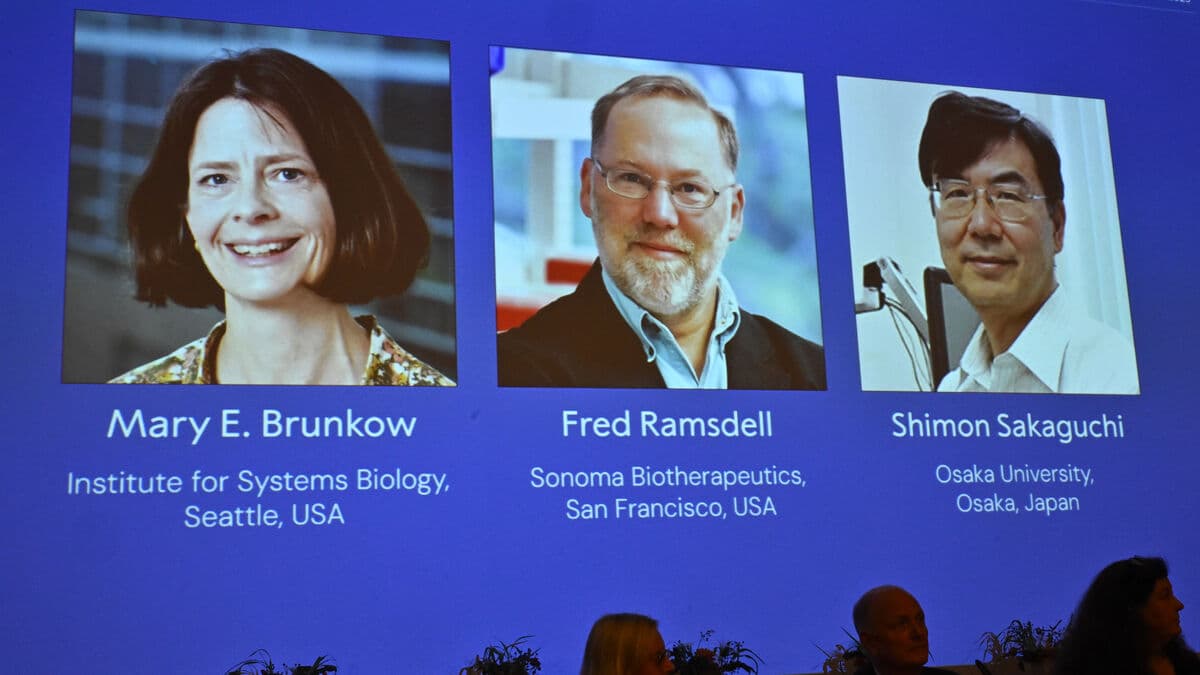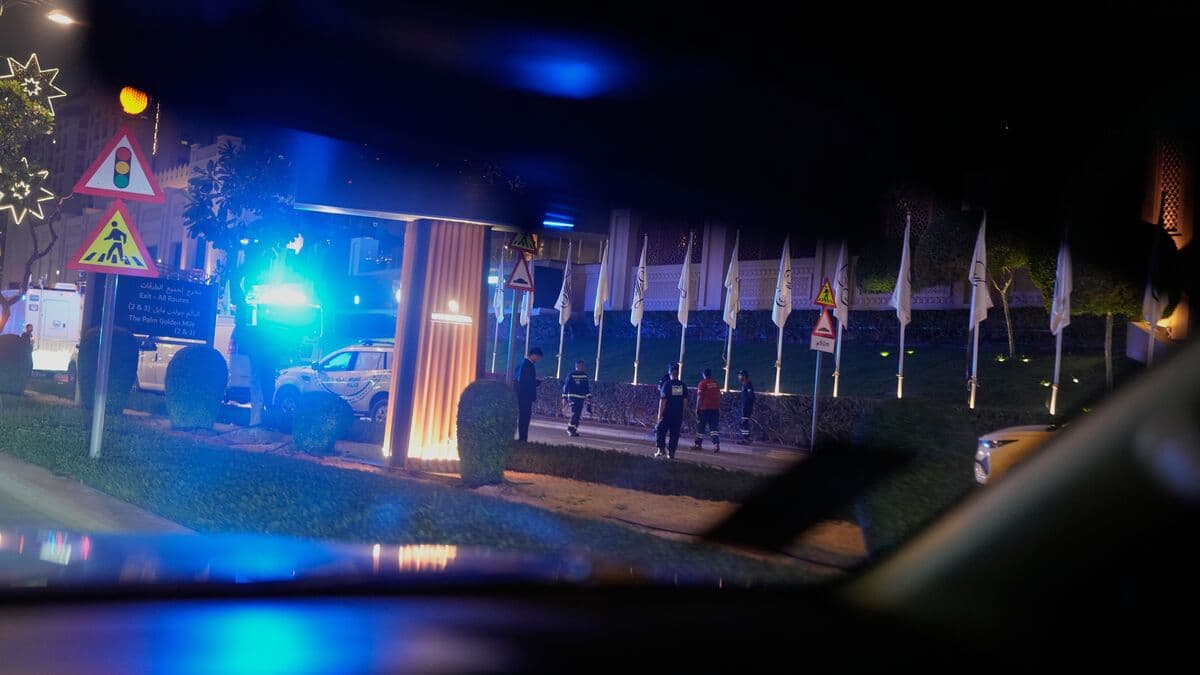We, I and my wife, are very happy to hear this message and look forward to visiting Stockholm in December, says Shimon Sakaguchi to Sveriges Radio's Vetenskapsradion.
Brunkow and Ramsdell have not yet found out that they have received the prize, says Academy member Thomas Perlmann at the presentation.
They probably have their mobile phones on silent mode. If they hear this, call me, he says.
The body's guardians of order
Immune tolerance is about the immune system's white blood cells and what makes them not attack our own body. The prize winners have identified the immune system's guardians of order – regulatory T cells – which prevent immune cells from attacking us while attacking foreign substances.
On the surface of these T cells, there are receptors, like antennae, that recognize different things. If they recognize things in their own body, it's called self-reactivity. Examples of this are type 1 diabetes, multiple sclerosis, and most rheumatic diseases, says Marie Wahren-Herlenius, professor of experimental rheumatology at the Karolinska Institute.
Already, hundreds of clinical trials are underway based on the discoveries.
One is trying to increase or decrease these cells that contribute to keeping the immune system in check. For autoimmune diseases, one wants more and more effective ones, while in cancer diseases, the cancer can use these cells to protect itself, then one wants fewer such cells, says Wahren-Herlenius.
30 years ago
It was the now 71-year-old Japanese Shimon Sakaguchi, active at the University of Osaka, who made the first key discovery in 1995 when he found a previously unknown class of immune cells.
Six years later, in 2001, the now 64-year-old Americans Mary Brunkow, from the Institute for Systems Biology in Seattle, and Fred Ramsdell, at Sonoma Biotherapeutics in San Francisco, followed up by explaining why a certain strain of mice is affected by autoimmune diseases.
They showed that the mice had a mutation in a gene that they named Foxp3. At the same time, they found that mutations in the human equivalent of the gene cause the serious autoimmune disease IPEX.
These two discoveries, made independently of each other, led to a whole new field of research and to a fundamental insight into how our immune system works to maintain tolerance, says Klas Kärre, professor emeritus of molecular immunology at the Karolinska Institute.
Physics: Tuesday, October 7, at the earliest 11:45 AM
Chemistry: Wednesday, October 8, at the earliest 11:45 AM
Literature: Thursday, October 9, at the earliest 1:00 PM
Peace Prize: Friday, October 10, 11:00 AM
The Prize in Economic Sciences in Memory of Alfred Nobel: Monday, October 13, at the earliest 11:45 AM
Source: nobelprize.org
The Nobel Prize winners in physics and chemistry, as well as the recipients of the Sveriges Riksbank Prize in Economic Sciences in Memory of Alfred Nobel, are appointed by the Royal Swedish Academy of Sciences.
The Nobel Prize winners in medicine are appointed by the Nobel Assembly at the Karolinska Institute, and the Swedish Academy decides who will receive the literature prize.
In all these institutions, there are special Nobel committees that conduct extensive investigations every year on a selection of nominated candidates. The name proposals come from nominations, which can only be made by certain specially appointed persons. This includes, for example, researchers, former prize winners, and academy members. The committees put forward a proposal that is presented to the respective prize-awarding institution, which then votes on the year's prize winners.
Regarding the Peace Prize, the Storting in Norway appoints the members of the Norwegian Nobel Committee, which is responsible for both the investigative work and the prize decision.
Source: Nobel Foundation
Alfred Nobel (born 1833 in Stockholm, died 1896 in San Remo, Italy) is Sweden's most famous inventor and industrial leader. His most important invention was dynamite, which he patented in 1867.
Alfred Nobel left behind a large fortune, and in his will, it was stated that the majority of the fortune would form a fund, where the return would go to prizes for "those who during the past year have conferred the greatest benefit to mankind".
Nobel wanted prizes to be awarded in five categories: physics, chemistry, physiology or medicine, literature, and peace.
The first prize ceremony took place in 1901.
Much later, the economics prize was established, or the "Prize in Economic Sciences in Memory of Alfred Nobel". The prize was established by the Sveriges Riksbank and was first awarded in 1969.
No more than three people can share each prize.
The prize ceremony takes place on Alfred Nobel's day of death, December 10. The Nobel Prize is awarded in Stockholm and Oslo (Peace Prize).
Sources: NE and nobelprize.org






